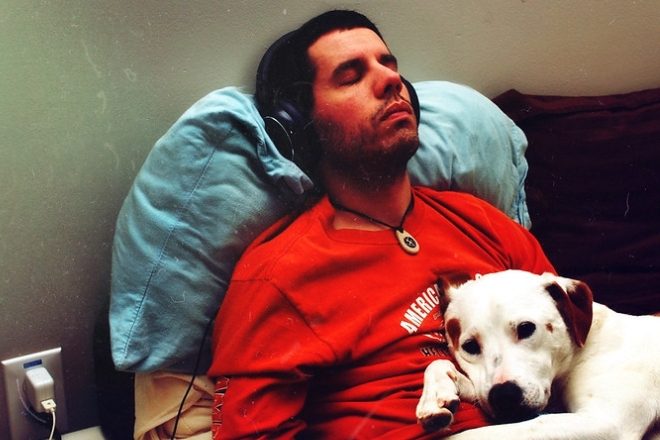Tracks that produce "chills" could act as a painkiller, new study reveals
McGill University researchers asked participants to listen to different types of music and monitored how it affected their pain levels

New research from Montreal-based McGill University suggests that listening to your favourite music could have an effect "as strong as over-the-counter painkillers."
In conversation with The Guardian, Darius Valevicius, first author of the research project, said that "we can approximate that favourite music reduced pain by about one point on a 10-point scale, which is at least as strong as painkillers like Advil [ibuprofen] under the same conditiions."
Read this next: Music can reduce depressive symptoms in people with dementia, studies show
According to Valevicius, "moving" music may have an even stronger effect. In the study, how "moving" a song was was linked to how many "chills" it produced: chills being sudden emotions or heightened attention reflected in tingling, shivers or goosebumps.
Music was also ranked in pleasantness and emotional arousal. While there was a strong correlation found between music pleasantness and pain unpleasantness, there was "zero correlation between music pleasantness and pain intensity, which would be an unlikely finding if it was just placebo or expectation effects," said Valevicius.
Meanwhile, music that produced more "chills" led to lower pain intensity and pain unpleasantness.
Read this next: Studies suggest music is beneficial for mental wellbeing
The difference in effect on pain intensity between music pleasantness and amount of chills aroused implies two mechanisms: "chills may have a physiological sensory-gating effect, blocking ascending pain signals, while pleasantness may affect the emotional value of pain without affecting the sensation, so more at a cognitive-emotional level involving prefrontal brain areas."
The study was conducted through applying uncomfortable levels of heat to over 50 participants' arms, with some sitting in silence, some with scrambled sound, others with relaxing music, with the rest listening to their two favourite songs.
[via The Guardian]
Read the full study, published by the Frontiers in Pain research journal, here
Tibor Heskett is Mixmag's Digital Intern, follow him on Twitter

Mixmag will use the information you provide to send you the Mixmag newsletter using Mailchimp as our marketing platform. You can change your mind at any time by clicking the unsubscribe link in the footer of any email you receive from us. By clicking sign me up you agree that we may process your information in accordance with our privacy policy. Learn more about Mailchimp's privacy practices here.


